
Principle Investigator

Dr Mohamed Elsawy is a Lecturer in Pharmaceutical Sciences at the Division of Pharmacy & Optometry, University of Manchester (UoM), and the team leader of the Peptide BioNanomaterials Group (PBNG). He obtained his B.Pharm.Sc. (Hons.) from the Faculty of Pharmacy, Cairo University, Egypt. He then got his PhD from the School of Pharmacy at Queen’s University of Belfast in 2012, supervised by Prof Brian Walker & Prof Lorraine Martin. His PhD project focused on the design and synthesis of modified peptide analogues and peptidomimetics for targeting key protein-protein complexes implicated in cancer resistance towards intrinsic apoptosis. Following his PhD, he was awarded a short-term fellowship from Campus France, which allowed him to do his first postdoctoral training at the University of Bordeaux, France, hosted in the Ivan Huc Group. During his first postdoc, Dr Elsawy developed new solid phase peptide synthesis (SPPS) strategies for the synthesis of aliphatic/aromatic oligoamide foldamers with helical conformations. In 2014, he started a EPSRC funded postdoctoral training in the Polymers & Peptides Research Group (led by Prof Alberto Saiani & Prof Aline Miller), at the University of Manchester. In Manchester, Dr Elsawy worked on the design and development of self-assembling β-sheet forming peptide nanofibers for the fabrication of hydrogels as vehicles for controlled drug delivery and as 3D scaffolds for stem cells. In 2017, he was appointed a lectureship in Pharmaceutics at the School of Pharmacy and Biomedical Sciences, University of Central Lancashire. In 2020, Dr Elsawy moved to the Leicester Institute for Pharmaceutical Innovation at Leicester School of Pharmacy, De Montfort University (DMU), before taking his current position in Manchester in 2024.
Current Members
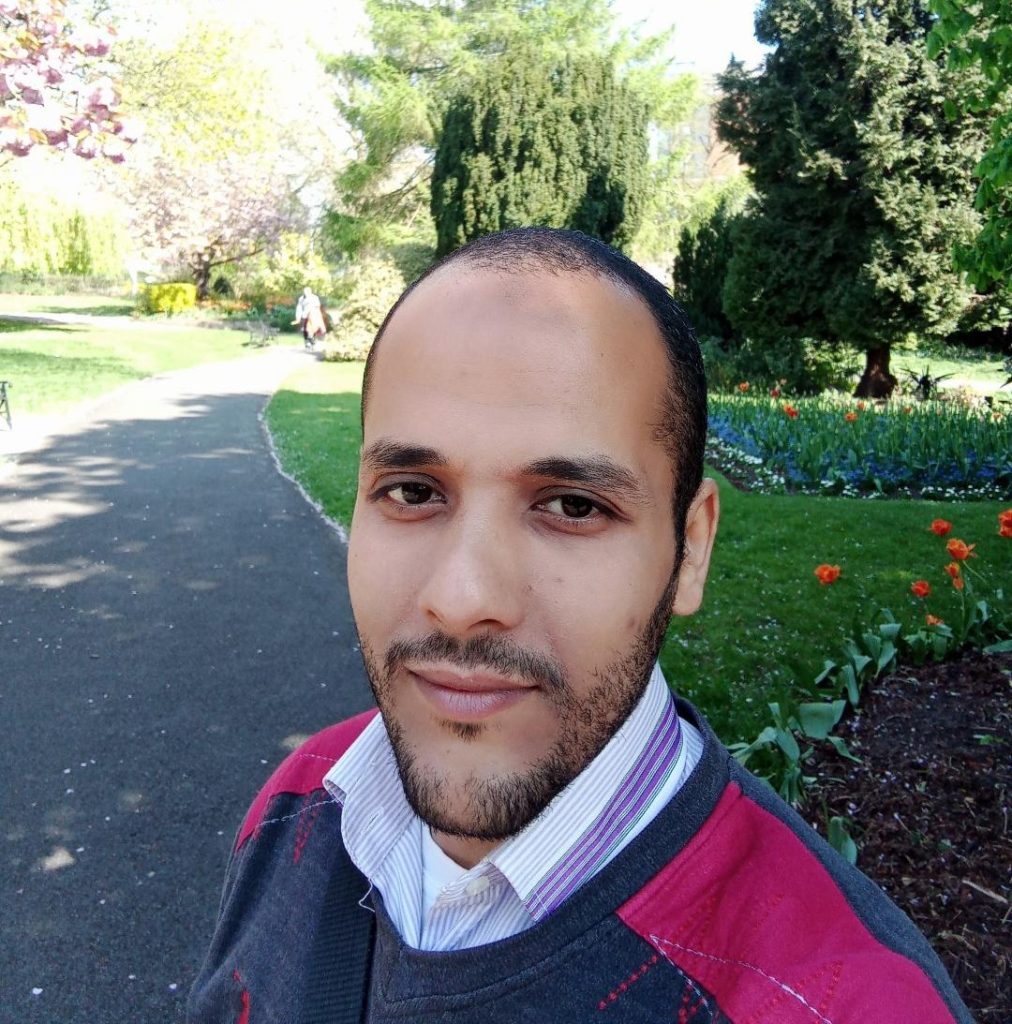
Abdelrhman Moustafa is a PhD student in the PBNG at DMU. He received Bachelors in Pharmaceutical Sciences from Faculty of Pharmacy, Alexandria University, Egypt; with honors. Abdelrhman then got M.Sc. degree in Pharmaceutical Sciences (Industrial Pharmacy) from the same University. Currently, His PhD project in the PBNG aims at developing peptide based hydrogel for nasal delivery of vaccines.

Tehseen Fatima is a PhD student in the PBNG at DMU. She obtained M. Tech (Biotech) from school of biotechnology, RGPV with thesis at IIT, Mumbai, India. She completed B. Pharmacy degree with honours from BU, India. She then worked as senior lecturer in Jazan University, Jazan, Saudi Arabia. Later on, joined NHS in UK. Her PhD project is focused on development of peptide – based 3D nanofibrous scaffolds for musculoskeletal tissue regeneration.

Bekzod Bekchanov is a PhD student in the PBNG at DMU. He obtained his Bachelors from the Faculty of Pharmacy, Tashkent Pharmaceutical Institute, Uzbekistan where he then was appointed as a teaching assistant at Department of Industrial Pharmacy and after as a senior teacher at the same place. He completed M.Sc. degree in Tashkent Pharmaceutical Institue with focus on obtaining medicines (tablets, capsules) with hepatoprotective activity. He got a scholarship from Pharma Park Programme in ADPI Uzbekistan to do his PhD in PBNG on a research project aiming to using microfluidic techniques for the development of peptide-based nanofibrous soft materials as injectable formulations for the local administration in cancerous masses with controlled release kinetics for drug components of combinations therapy, to enable spatio-temporal control of delivery.
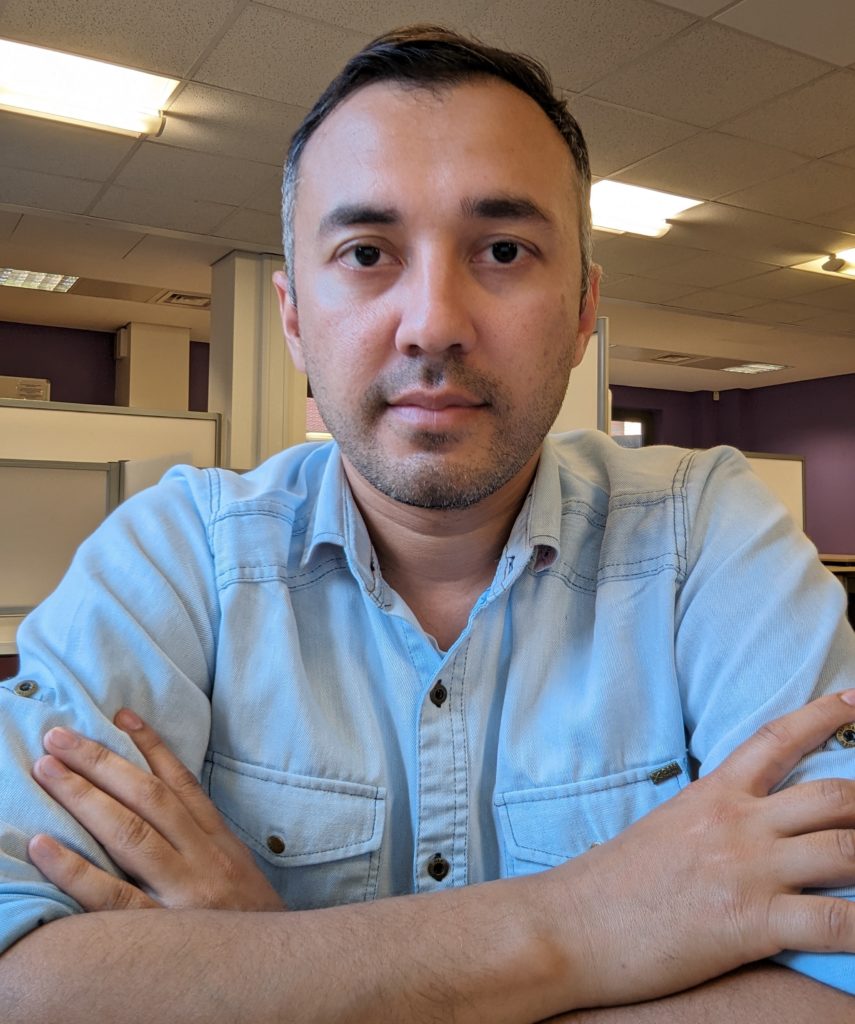
Alisher Djumaev is a PhD student in the PBNG at DMU. He obtained his BSc in Biology, focusing on vector construction for gene expression, and completed his first MSc in Biotechnology, focusing on the development of soluble forms of polyphenolic compounds, from the National University of Uzbekistan’s Department of Microbiology and Biotechnology. Following his MSc, he was appointed as a junior lecturer in his department. During the Fall semester of 2021, he was a visiting scholar at Penn State University’s Ozbolat Lab. Alisher received a scholarship from his government to pursue a second MSc in Pharmaceutical Biotechnology at DMU. After graduating with distinction, he was awarded a DMU scholarship to pursue a PhD in Pharmaceutical Sciences. His PhD research focuses on the painless transdermal delivery of peptide hydrogel vaccine formulations using core-shell microneedles.
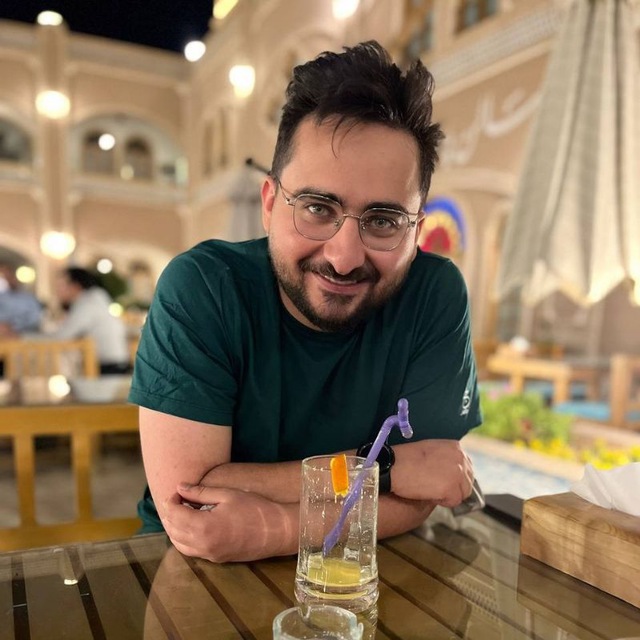
Navid Dad is a Medical Microbiology PhD student in the PBNG at UoM, jointly supervised by Prof Andrew McBain. He completed his MSc in Microbial Biotechnology at the National Institute of Genetic Engineering and Biotechnology (NIGEB), focusing on antibiofilm antimicrobial peptides in a joint research project with McGill University, under the guidance of Dr Kambiz Akbari and Prof Hojatollah Vali. Currently, Navid’s PhD research aims to optimize the antimicrobial and antibiofilm activities of peptide-based nanofibrous hydrogels through conjugation and targeted therapy methods.
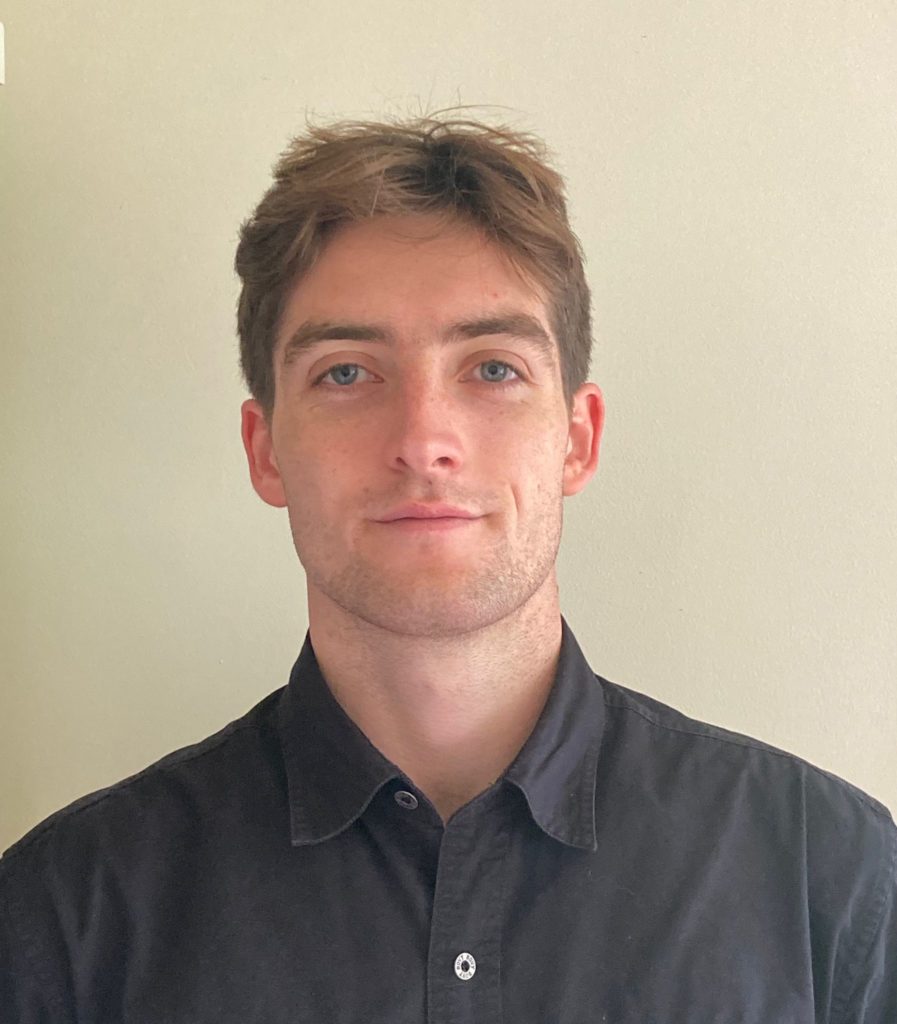
Alfred Corrigan is a PhD student in the PBNG at UoM. He obtained his MSc in Chemistry (1st class) from the University College London (UCL). Following a year of teaching English as a foreign language and science he joined the Elsawy group. For his PhD, he aims to develop bioinspired soft robots based on peptide hydrogels for regiospecific drug delivery to colorectal cancer tumours. Alfred’s PhD project is funded by the EPSRC Doctoral Training Programme at the UoM.
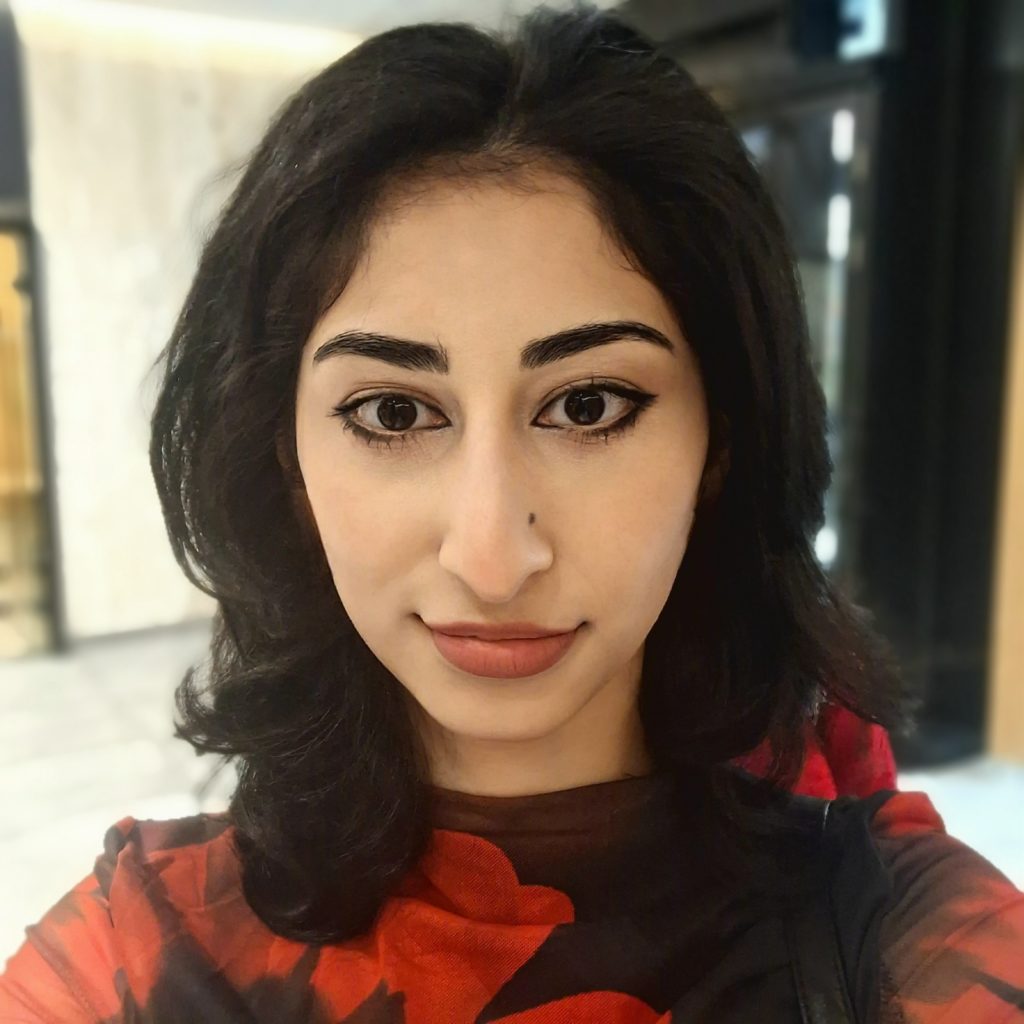
Saarah Mazhar graduated in 2023 from Manchester Metropolitan University with a First-Class BSc (Hons) in Biomedical Science. She completed an MSc in Tissue Engineering for Regenerative Medicine at the University of Manchester in 2024. Her current doctoral research focuses on developing a novel drug-delivery approach using self-assembling peptide hydrogels (SAPHs) to target solid tumours in vivo. She works in collaboration with the Polymers and Peptide Group, the Experimental Oncology Lab and the PBNG Group. Saarah’s PhD is funded by the Medical Research Council (MRC) at the University of Manchester.
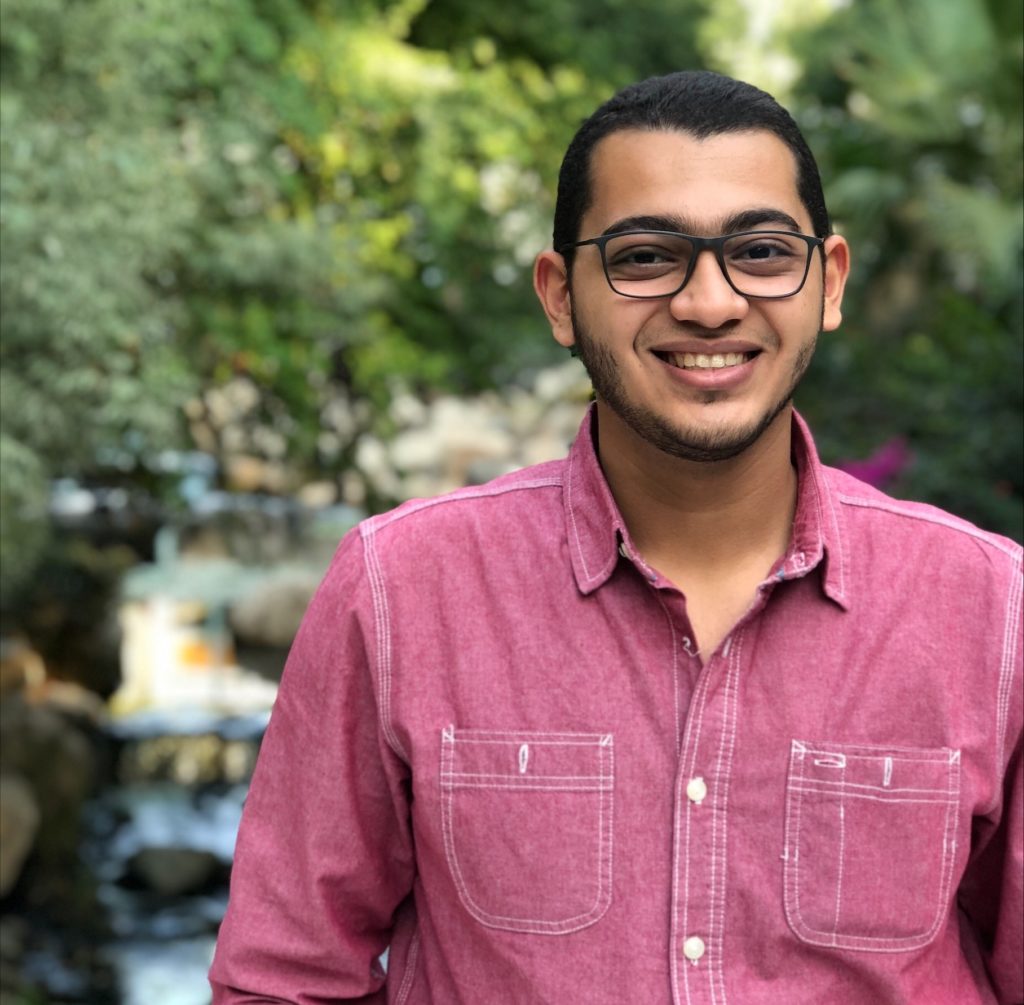
Hesham Elashmouny is a PhD student in the PBNG at UoM. He holds a PharmD degree from the Gulf Medical University (GMU), UAE, where he also completed a Masters degree in Drug Discovery & Development. His Masters project focused on the development of transdermal hybrid nanovesicular gel formulations. Hesham’s PhD project focuses on developing protease sensitive peptide hydrogels for localized, tumor-responsive delivery of anti-cancer agents to gastrointestinal tumors.
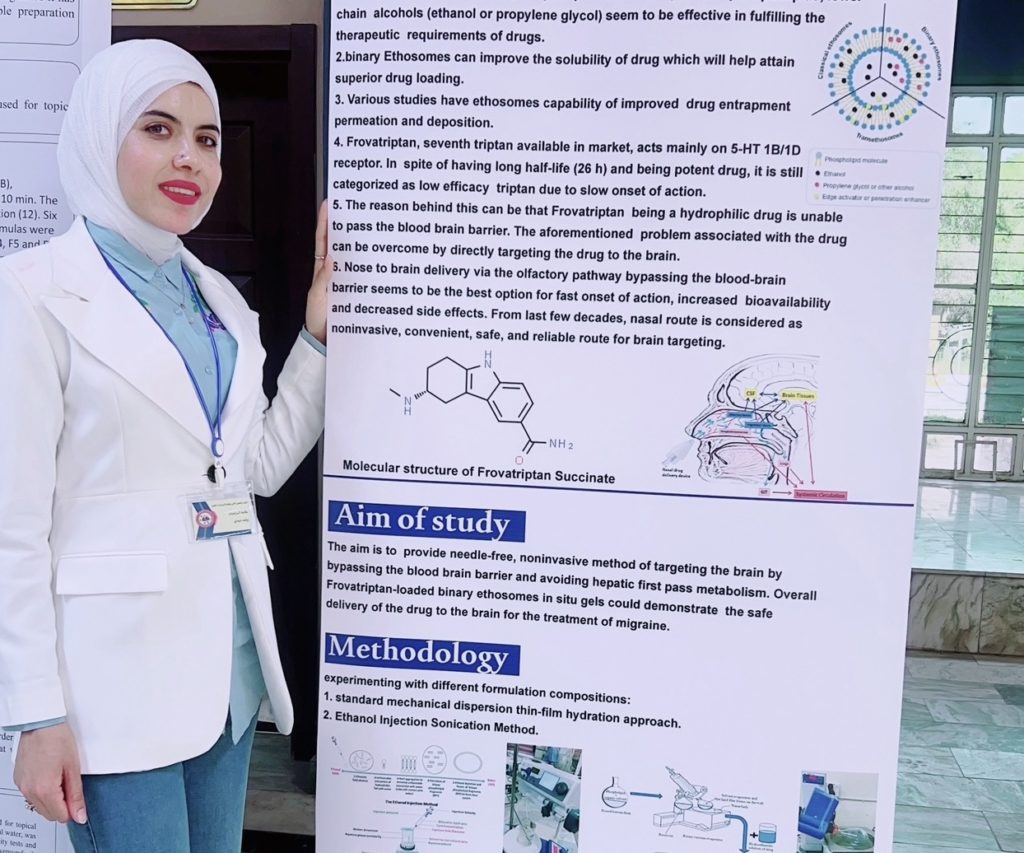
Hajir Ali is a PhD student in the PBNG at UoM. Hajir completed her Bachelor’s degree in Pharmacy from the University of Basrah and later completed her M.Sc. in Pharmaceutics at the University of Baghdad, Iraq, graduating among the top students. Along the way, she secured a national patent that opened the door to a prestigious Prime Ministerial Scholarship, based on academic excellence and innovation, bringing her to join the PBNG. Hajir’s PhD project explores an ambitious path for targeting glioblastoma stem cells using nanofibrous hydrogels for the localised delivery of siRNA-loaded lipid nanoparticles; a step toward smarter, more precise cancer therapies.
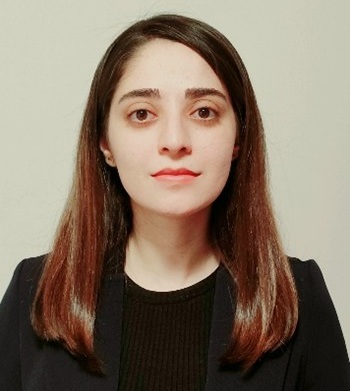
Nayereh Azimijou is a PhD student in the PBNG at the UoM, jointly supervised by Dr Mahetab Amer. She obtained her BSc and MSc in Biomedical Engineering – Biomaterials from Amirkabir University of Technology (AUT) and completed her MSc with a focus on polymeric-based drug delivery systems for cancer therapy. Nayereh’s PhD research focuses on the development of peptide-based hydrogels for bone and cartilage tissue engineering, aiming to develop injectable, self-assembling biomaterials that can guide mesenchymal stem cell behaviour and support osteochondral regeneration. Nayereh’s PhD is funded by the President’s Doctoral Scholar Award at the University of Manchester.
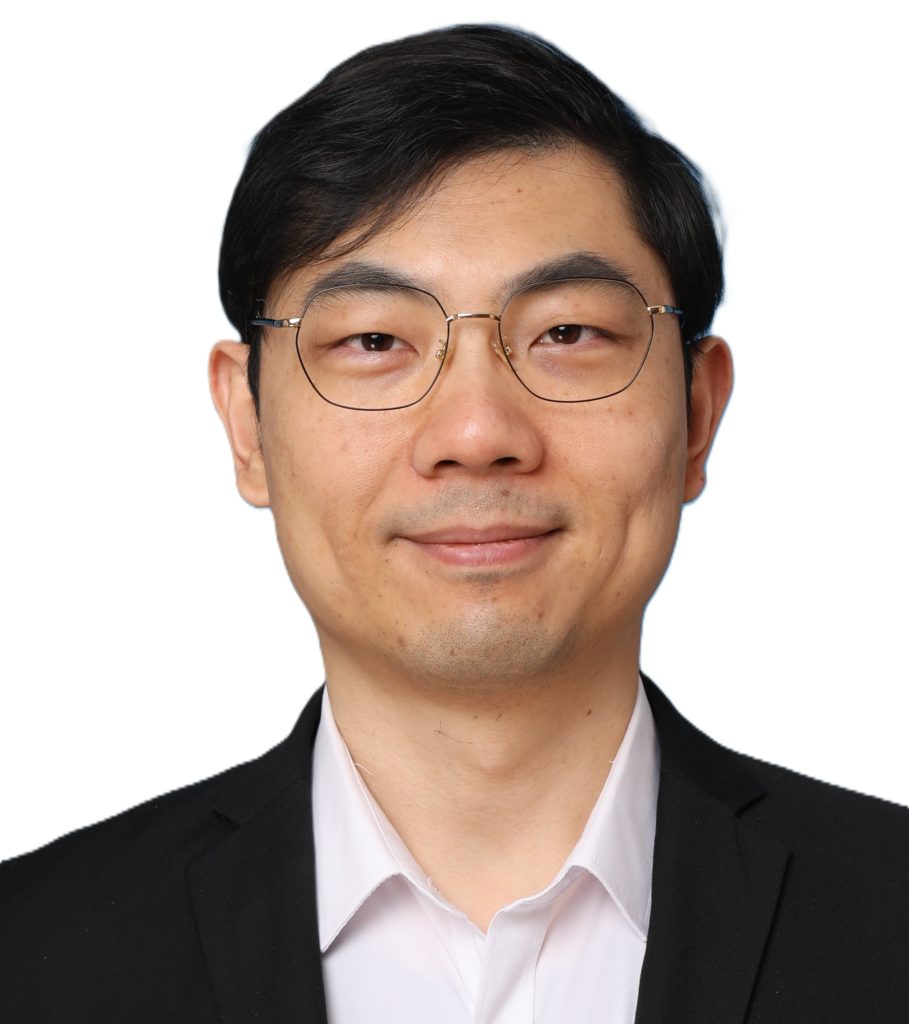
Zhouchong Wang is a PhD student in the PBNG at the UoM, jointly supervised by Dr Christos Tapeinos. He obtained both his Bachelor’s and Master’s degrees in Clinical Medicine from Shanghai Jiao Tong University School of Medicine in China, where he also completed his medical training. Prior to starting his PhD, he worked for nearly a decade as a surgeon specialising in Gastroenterology and Hepatobiliary Oncology, followed by eight years industry career in clinical development for innovative therapeutics. In 2025, he began his PhD project, which integrates peptide-based hydrogels and electric-field/radiation stimuli-responsive nanotechnology to develop a local delivery platform for post-resection glioblastoma therapy. His work tries to span fundamental material screening and characterisation, as well as in-vitro and in-vivo therapeutic evaluation, with the aim of advancing clinically translatable solutions for GBM treatment.
Alumni
Dr Somaya Amer did his PhD in our group (2020-2024), where she worked on developing a novel delivery system for cell therapy in dystrophic muscle. After her PhD, she started a Postdoctoral Research Associate position at the University of Manchester.
Dr Abdulwahhab Khedr did his PhD in our group (2020-2024), where he worked on developing peptide hydrogels for localised delivery of chemotherapy in glioblastoma. After his PhD, she started a Postdoctoral Research Associate position at the University of Manchester.
Dr Mohamed Soliman did his PhD in our group (2020-2024), where he worked on developing anti-microbial peptide-based hydrogel designed for wound healing applications. After completion of his PhD, he started a Postdoctoral Research Associate position at the University of Southampton.
Dr Reem Alazragi was a Postdoctoral Research Associate in our group (2021-2022). She worked on developing peptide hydrogels designed for 3D scaffolding of skin derived cells for wound healing. In 2022, she moved to the University of Jeddah to take an Associate Professor position at the Department of Biological Science.
Dr Afaf Abouzid did her PhD in our group (2017-2019), where she worked on developing a novel nanoliposome drug delivery system for the buccal delivery of immunomodulators to treat oral mucosa ulcers. After her PhD, she worked as a Postdoctoral Research Scientist at Revivocell Ltd.
Rhema Patrick was an MSc student in Cancer Biology and Therapy in our group (2018-2019), where she worked on experimental and computational comparative studies for designing potential anti-cancer nanomaterials.
Dhelal Mohammed was an MSc student in Drug Discovery and Development in our group (2018-2019), where she worked on a project focused on fine tuning the release kinetics of anti-cancer drugs from peptide hydrogels by manipulating peptide-drug non-covalent interactions.
Dipti Kaspate was an MSc student in Cancer Biology and Therapy in our group (2018-2019), where she worked on a project focused on the in vitro testing of anti-cancer peptide hydrogels designed for the localised therapy of glioblastoma.
Dr James Leach was a Graduate Intern in our group (2018), where she worked on optimising formulation development protocols for nanofibriller hydrogels, emulgels and microspheres for drug delivery applications. After this intern, he moved to the Department of Chemical Engineering at Newcastle University to take an EPSRC funded PhD position.
Ronak Patel was an MSc student in Industrial Pharmaceutics in our group (2017-2018), where he worked on developing peptide based nanofibrous emulgels for drug delivery. After his MSc, he moved to work for AstraZeneca (Biologics Supply).
Nadia Moinuddin was an Undergraduate Intern in our group (2017), where she helped the team in developing short self-assembling amphiphilic peptide nanofibres as emulsifiers for emulgel formulations.
